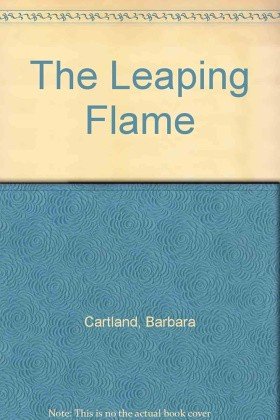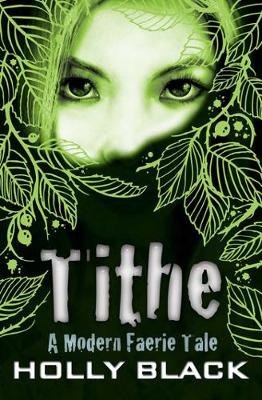“But I can’t. Don’t you understand how impossible it would be? I couldn’t marry him under false pretences, and Michael would never understand if I told him about Lionel.”
“But why should you tell him?”
Mona looked at her mother in surprise.
“You’d want me to leave him in ignorance of what my life has been? I should feel dishonest.”
Mrs. Vale sighed.
“That’s the conventional attitude. It is the attitude I should have expected my mother to take up, but to my mind it is against all common sense, all knowledge of human psychology.”
“How can you say that?” Mona exclaimed.
“Let us look at it sanely, without emotion,” her mother suggested. “You want to confess to Michael what we both consider your sins, because you think you would be behaving in a dishonest manner were you to leave him in ignorance of your past. Now that is the traditional Victorian idea, they had a kind of superstition that it would be unlucky for a woman to act otherwise and finally, that having confessed her sins, she in some way became absolved from them.
“What you are doing in reality is lightening your own burden. Nothing is to be gained by bringing up the past, by making Michael, as it were, a partner in your crimes. Whatever he feels about them they cannot be eradicated. All you are doing is sharing your sense of guilt, making Michael an unwilling participant in that which does not really concern him at all.
“And what is more,” Mrs. Vale went on, “in your efforts to make Michael a kind of confessor you are forgetting the human element. Michael loves you. He loves you because of what you are at this moment. Some of the very reasons for his love may lie fundamentally in the fact that you have gained experience. It is difficult for any of us to judge what you would have been like, had you not loved Lionel, but wrong though your association has been, it has brought you a mellowness, a kindliness and other gentle characteristics that might not have been there had you lived a more conventional and normal life.”
“I see what you mean,” Mona said slowly, “but still the idea shocks me.”
“It shocks me much more,” her mother retorted, “to think of the weakness of what you want to do, for it is weakness to my mind, a legacy from the day when men were looked on as superior beings who could sit in judgment on the frailty of the weaker sex.
“What you must ask yourself is whether or not the satisfaction in confessing your past to Michael is worth the risk of destroying his faith. In my opinion there is only one supreme and utter cruelty, and that is the destruction of someone else’s faith. Many men are like children, when they love a woman, they believe in her, they trust her. One wouldn’t deliberately hurt a child by failing its trust – it’s equally easy to fail some men.”
“I wonder if you are right?” Mona questioned. “It sounds too easy a way out of my difficulties.”
“It won’t really be easy,” her mother answered. “You think that now, but always you will be haunted by fear, the fear that Michael might find out about you, the fear of not living up to the high standard he will expect of you, the fear that in some way your experiences may have coarsened you.
“One can never escape from the consequences of an action, and therein lies one’s punishment or reward. But, my dear, you must lead your own life. It is yours, to make or to mar. Only if you love Michael, you will seek the way that is best for him, not for yourself.”
Nanny interrupted their conversation by bringing in tea. She scolded Mona for not having come back to luncheon and made up the fire. The thread of the conversation was lost, but when they were alone again Mona said to her mother,
“I can’t believe that Char’s really gone. It’s like waking up after a nightmare.”
“Poor woman!” Mrs. Vale said unexpectedly.
“Can you really be sorry for her?”
“Very sorry. She told me a little of her life-story before she left, and I saw that she was up against difficulties and temptations of which women living a more sheltered existence may never dream.”
“And did Jarvis Lecker come to luncheon?”
“No, Mrs. Strathwyn put him off. She spoke to him on the telephone. I’m afraid he was rude to her – she was most upset when they had finished speaking.”
‘Char was right,’ Mona thought. ‘He won’t do a thing for her now. I wonder how she will live?’
As if she read her daughter’s thoughts, Mrs Vale said,
“She will be all right for the moment, I saw to that.”
Mona almost dropped the teacup she held in her hand.
“You didn’t give her money Mummy!”
“I was sorry for the poor woman. After all, she has no home and no one to whom she can turn.”
“Mummy, you’re hopeless!” Mona exclaimed. “How could you beggar yourself for a woman like that?”
“I could afford the little I gave her,” Mrs Vale replied.
“It’s worth anything to get rid of her,” Mona said, “but how can I ever be grateful enough for what you’ve done?”
Her mother smiled.
“By marrying Michael and giving me a large number of grandchildren that I can spoil to my heart’s content.”
But, despite all her mother had said, Mona was not satisfied in her own mind. She knew now that she loved Michael and she was sure that they could find happiness together, but she could not bring herself to lay aside the past.
It was easy to point the way forward to other people, to advise Stanley Gunther to turn his face to the sun and to forget the shadows behind him, but the years with Lionel lay upon her own conscience, standing like a barrier between herself and the happiness she dared not grasp. It was impossible not to see how different in character the two men who played such supremely important roles in her life were. Mona wondered what would have been the end of her relationship with Lionel if he had not died. Would they have gone on loving one another until her beauty faded and she could no longer attract him.
She shrank from the idea that Lionel might have had no further use for her once her youth had gone, from believing that their love had been based entirely on a physical passion. Yet she admitted in all honesty that Michael was very different from the man who had captured and held her imagination during those seven years. Somehow she knew indisputably, that Michael’s love would be impervious to time or change, a love on which she could rely for all eternity. He had said little and yet she knew without words that he was hers absolutely and completely and she knew, too, that there were depths in his character of which she had no comprehension.
What would he say if she told him about Lionel? Surely, he would understand, she thought.
‘Mummy’s wrong. sSe doesn’t realise that our life together must be built on a foundation of truth.’
All through the evening she turned the problem over and over in her mind, until at last she felt that she must make a decision one way or another. When dinner was over her mother went upstairs. Her cold was still bad and Nanny, fussing round as Mona said, “like an old hen,” insisted on Mrs. Vale having a glass of hot milk and two aspirins in bed.





















